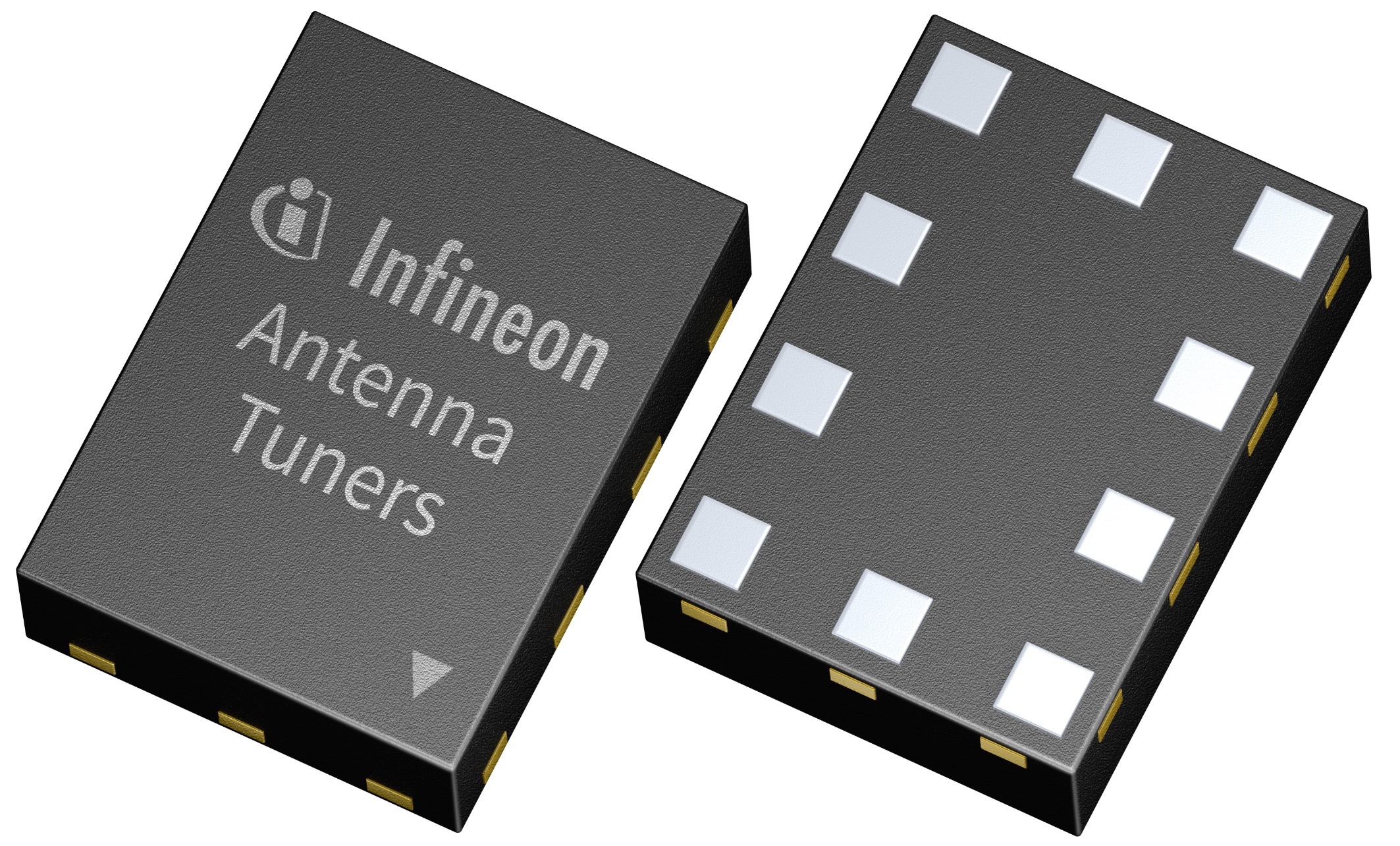Infineon’s new antenna tuners enable the high data rate, better signal quality and longer battery life in 5G smartphones

Munich, Germany. 24 February, 2022 – The number of connected devices is growing rapidly. At the same time, customers expect an ever better user experience in terms of product design and functionality. This poses a major challenge for RF engineers, as antenna design complexity is also constantly increasing due to new features, performance requirements and innovative form factors.
In particular, the introduction of 5G brings additional challenges as even more frequency bands need to be covered in a limited space. All of these factors potentially impact antenna performance.
To support RF engineers, Infineon Technologies AG is expanding its portfolio of small, ready-to-use antenna tuners. Based on many years of RF expertise and technology development, the company has succeeded in further improving the efficiency of antennas.

Therefore, following the successful market launch of the BGSA147ML10, Infineon is now further expanding its range of antenna tuners with new antenna tuning switches. These devices are suitable for Sub-7.2 GHz New Radio (NR) applications, supporting both 4G and 5G in smartphones, notebooks, wearables, VR headsets, smart home and other cellular applications.
Antenna tuners BGSA144ML10, BGSA400ML10 and BGSA403ML10 are available in the 1.1 x 1.5 mm 2 TSLP 10-pin package. BGSA14M2N10, on the other hand, comes in the 0.95 x 1.3 mm 2 TSNP 10-pin package with 350 μm pad pitch.
The antenna tuners are available in the following technical specifications:
Medium RF Voltage
- BGSA14M2: SP4T, smallest footprint 0.95 x 1.3 mm 2, 45 VRF
- BGSA147M: SP4T with resonance stoppers, 1.1 x 1.5 mm 2, 45 VRF, drop-in compatible with BGSA144M
- BGSA403M: 4SPST, 1.1 x 1.5 mm 2, 50 VRF, drop-in compatible with BGSA400M
High RF Voltage
- BGSA144M: SP4T with resonance stoppers, 1.1 x 1.5 mm 2, 80 VRF, drop-in compatible with BGSA147M
- BGSA400M: 4SPST, 1.1 x 1.5 mm 2, 90 VRF, drop-in compatible with BGSA403M
More information is available at here.
Comment on this article below or via Twitter @IoTGN
